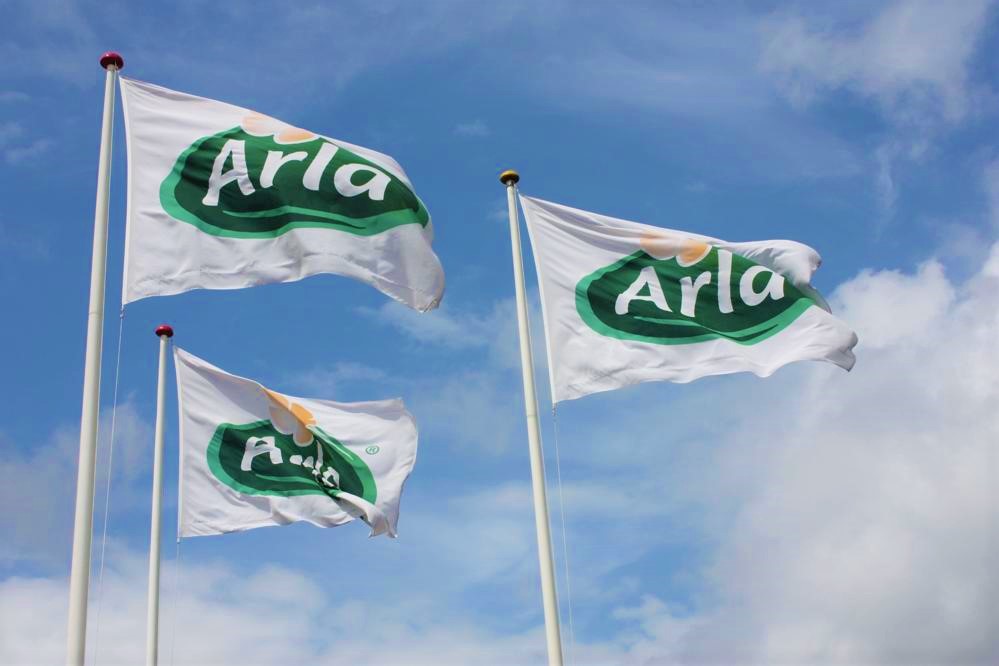Arla bosses have warned they remain cautious over the “potential adverse consequences” of Brexit in the firm’s half-year report.
Over the full year, the firm expects to turn over between €10.2 billion and €10.6 billion. However, it warned Brexit and the likelihood of a ‘no-deal’ exit still had the potential to knock business.
Arla chief executive Peder Tuborgh said: “During all six months we delivered a stable and competitive performance price at €36.1/kg mainly due to improved market circumstances and deliveries from our Calcium transformation programme, which exceeded expectations.
“We continued to increase the brand share and deliver growth for our strategic brands at 4.6%.
The international segment, in particular, excelled in the first half with 10.2% branded volume growth, leading to an increased international share of Arla’s total retail and foodservice business.
“Our transformation programme, Calcium delivered significantly ahead of plans throughout the organisation, which has contributed to a healthy net profit level.
“Well into the second year of our transformation, we have made sustainable changes to the way we work, spend and invest.
“We also invested a record-high €384 million in mergers and acquisitions and capital expenditure in the first six months of 2019. For example, in technologies, process optimisation, energy efficiencies and expansions to our supply chain.
“Despite heavy investments and the extraordinary payout of the 2018 profits to our owners, our leverage is still well within the target range.
Rest of year forecasts
“In the second half of 2019, we will focus on remaining on track and building additional momentum to deliver our full-year targets and strengthen our competitiveness.
As global economic and political uncertainties grow, we remain alert and prepared, particularly for the damage Brexit may cause, while also closely watching the results of trade wars. However, our outlook is positive and on several key performance indicators we are even increasing the expectations.
The firm confirmed its year-end 2019 net-profit share outlook remained at 2.8-3.2% of revenue unless “significant adverse consequences” of Brexit affect its results.
Savings from Calcium initiatives – Arla’s cost-cutting action plan – are also expected to slow in the second half of 2019.
The report also highlighted that the global milk price environment has remained stable for the first months of the second half of 2019.
However, given the volatility of global milk markets and the significant price sensitivity to changes in supply and demand, it stated it would not provide guidance on the milk price outlook for the rest of 2019.
Tuborgh also explained that over the same period, the firm solidified its presence in the Middle East and North Africa with the formal takeover of the operations of the Kraft branded cheese business from Mondeléz International.
“That investment and our license agreement to use Kraft for the next 12 years will have great strategic importance for the international segment going forward,” he said.
Environmental sustainability
The firm also made big gains in its plans to become more environmentally conscious. In the first half of the year, over one billion pieces of packaging across Europe were switched for more renewable and recyclable options.
This initiative alone is estimated to be close to delivering a reduction of 8,000t of CO2 from packaging every year until 2030.
“By the end of the year, we are making 600 million fresh milk cartons renewable and 560 million yoghurt pots recyclable thus cutting 7,330t of carbon out yearly from our value chain,” Tuborgh said.
“This first big move in our sustainable packaging strategy will help us reach our 2030 ambition of reducing CO2 emissions by 30%.”
The new packaging will be available for consumers in Arla’s six main European markets – Sweden, Denmark, Finland, the Netherlands, Germany and the UK.

